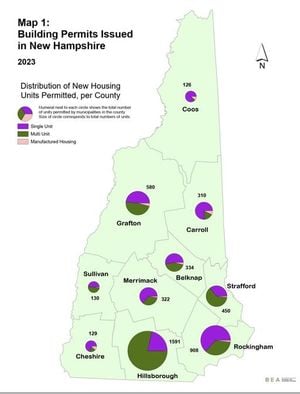Sumitomo Corporation is embarking on an ambitious pilot program for autonomous delivery vehicles, with plans rolling out the initiative in Yokohama starting February 10, 2025. This innovative approach aims to address transportation challenges and improve public transport services across the city.
Working alongside local government entities and technology partners, including BOLDLY, TaKuRoo, and Tier IV, Sumitomo Corporation is positioned to lead the way with this project. Kenji Nakamura, spokesperson for Sumitomo Corporation, stated, "This project will be pivotal for the future of transportation within Yokohama." Their collaboration is geared not just toward immediate operational success but also toward broader improvements in urban mobility.
Initially, the pilot program will implement Level 2 automation, which allows for some features of self-driving technology under driver supervision. The objective is to gather data and community feedback as the autonomous vehicles traverse predetermined routes within the city, particularly benefiting areas around Yokohama's shopping and residential districts.
By 2026, the goal is to transition to Level 4 automation, which signifies fully autonomous operation under specific conditions. This level will facilitate various connectivity solutions, including links to nearby train stations and integration with local taxi services. Ayumi Takahashi, project manager at BOLDLY, noted, "We are committed to building infrastructure for the future of mobility," highlighting the progressive vision inherent to this project.
The pilot program's operational details suggest several key milestones. The autonomous vehicles will be deployed on routes connecting key landmarks, ensuring accessibility for both residents and visitors. The participants aim to operate the vehicles during set hours to maximize visibility and engagement with the public, which is deemed necessary for fostering acceptance of this new technology.
Aside from technological deployment, this initiative encompasses comprehensive community evaluations. Stakeholders are focused on assessing the sociocultural impacts, determining how local citizens and businesses accept these autonomous delivery vehicles. Early community feedback will be instrumental, shaping how the technology can be adapted for optimal local use and support.
Notably, this pilot program embodies Sumitomo Corporation’s broader strategic ambitions to shape the future of urban transport, without compromising the historical value of its cities. The integration of autonomous vehicles is not only about technological advancement—it also speaks to sustainability objectives and improving life quality for citizens.
Innovative case studies around the globe already demonstrate the potential successes and challenges of similar autonomous projects. By learning from other metropolitan initiatives, such as those deployed successfully in places like San Francisco and Tokyo, the Yokohama pilot aims to avoid common pitfalls and embrace best practices.
Hence, achieving the project's goals will require seamless collaboration among all partners, as well as consistent dialogue with the community. Engaging local officials, businesses, and residents ensures diverse input which is reflective of the community’s varying needs and expectations.
At its core, this pilot program is dedicated to exploration and education, reinforcing the idea of shared learning as autonomous technology evolves. Feedback loops will allow for real-time data collection and adaptability, ensuring the lessons learned on Yokohama’s roads can inform broader regional advancements.
The significance of this initiative extends beyond the operational phase; it marks the beginning of what could be transformative changes for urban logistics and personal mobility. It stands as proof of Sumitomo Corporation’s commitment to investing in forward-thinking solutions to modern transportation dilemmas.
Looking toward the future, as this pilot program charts its course, the hope is not only to prove the viability of autonomous vehicles but to create layers of connectivity and operational efficiency within Japan's cities. These enhancements seek to contribute beyond local transit, impacting regional economic development, tourism, and overall mobility enhancement.
Yokohama's forthcoming venture reflects broader trends globally and signifies how cities worldwide are embracing technology to redefine their transport networks. With this program, Sumitomo Corporation points to the importance of innovation and partnerships, paving the way for future infrastructure developments as urban landscapes adjust to meet modern demands.



